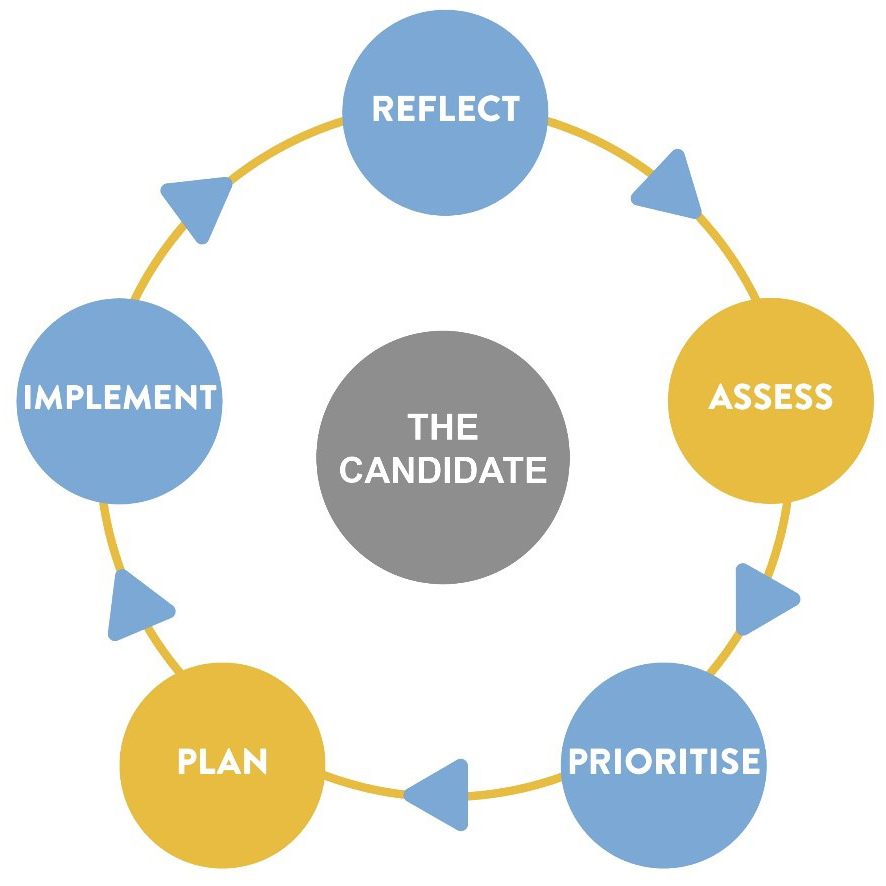Individual Development Plan

An Individual Development Plan (IDP) provides a structured process to plan for a successful higher degree by research (HDR) experience and attainment of UQ’s HDR graduate attributes. The IDP is designed to be used periodically to:
- reflect on and assess your skills,
- consider your career aspirations,
- identify areas where you could benefit from gaining further experience,
- formulate a customised development plan, and
- engage in development opportunities during your candidature.
You should create and maintain an Individual Development Plan as part of the HDR Progress Review process. Typically, you would bring a draft to a meeting with your Principal Advisor to discuss and agree on a plan together. It is a good idea to reflect on the previous year's plan and make adjustments based on your evolving needs in the lead up to each Progress Review. This iterative process encourages ongoing engagement with your professional development, as illustrated in the diagram above. The Graduate School provides the following IDP template, but please check the Progress Review guidelines for your school or institute for local requirements.
Individual Development Plan (DOCX, 81.4 KB)
You may wish to use our Development Needs Analysis (DNA) to help you prepare your IDP. This is an optional self-assessment tool designed to help you identify areas of strength and improvement. This tool can be used before meeting with your Principal Advisor to discuss your development plan.
Development Needs Analysis (optional) (DOCX, 92.6 KB)
For extra support on how to conduct a review of your needs and put in place a development plan please refer to our 'Guide for HDR candidates (DOCX, 55.1 KB)'.
Over the past decade, the focus has shifted from preparing HDR graduates for a career in academia to developing graduates capable of applying their skills in a broader range of contexts. The University of Queensland’s HDR Graduate Attributes reflect these evolving expectations and can be developed through both discipline-specific research and professional development activities. The goal is to produce innovative graduate researchers who significantly contribute to their discipline and profession.
Creating an Individual Development Plan (IDP) provides HDR candidates with the opportunity to regularly assess their skills, create a personalised action plan, and engage in development opportunities purposefully during their candidature. You can support this endeavour by mentoring your candidates and providing advice about their development needs. The IDP provides a tool for framing and supporting these conversations with candidates.
The Development Needs Analysis (DNA) is an optional self-assessment tool designed to help candidates identify areas of strength and improvement. Encouraging your HDR candidate to complete the DNA before discussing their development plan can help identify any gaps that need to be addressed. For more details on completing each document, refer your HDR candidate to the 'Guide for HDR candidates (DOCX, 55.1 KB)'.
